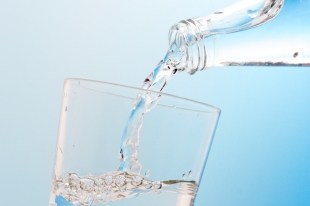How does water impact healthy aging and prevention of disease?
70% of our body is water. Not drinking enough fluid increases our risk of kidney stones, constipation and other nasties such as hemorrhoids. The resulting bowel sluggishness may also contribute to an increased risk for colon cancer. Skin and mucous membranes also become dry if we don’t drink enough, which can lead to flaking, cracking and reduced density. Inadequate fluid intake can also lead to a drop in mental and physical performance, impairing our co-ordination, concentration, and slowing our thinking. There is also some evidence suggesting thirst can sometimes be mistaken for hunger, so under-drinking may contribute to overeating. All in all, if you don’t drink water then this will lead to many health issues. Good daily water intake is core to a healthy aging and disease prevention plan.
How much water should we drink?
Most of us should drink at least 2 to 3 liters of fluid (about 8 – 10 glasses) every day. On hot days or after exercise we will need to drink more to make up for fluid lost as sweat. We know when we’ve got it right when we’re making a good amount of clear to light yellow urine with little or no odor.
What sort of water is best for healthy aging?
Water is an ideal drink that is cheap, readily available and contains no calories. There are now many water products on the market that compete with the taps in our homes, on the basis that they ‘taste’ better, lack contamination or have additional ‘health benefits’ such as minerals and trace elements. There are also a range of purification technologies which have their own positives and negatives. Certainly high quality filtered water has many merits (like less chlorine and fluoride) that make it more enjoyable to drink and use in cooking. However, tap water quality in most Western countries is excellent, highly regulated and monitored. At the same time, plastic bottles may leach small amounts of toxins (such as phthalates and Bisphenol A) and have an environmental impact as pollution. In the end, the choice of water is largely pragmatic. Choose the one where you will actually drink 8-10 glasses a day. This is more important than the source.
Options to optimize your water intake
- Drink 500ml of water first thing in the morning – take at least 500 ml to one liter of water to flush your digestive tract and rehydrate your system from the overnight dry
- Drink water at regular intervals throughout the day
- Set objectives such as drinking before you leave the house, and first thing upon your return, or before you start work
- Set your alarm so you have a drink every hour
- Have a glass of water each time you need a break from work
- Drink before meals (15 to 20 minutes before) or 1 to 3 hours after meals
- Drink when you are more active – whether that be mental or physical activity
- For clear thinking or more energy, take a sip of water
- Keep a bottle on the desk or carry one (preferably made of glass, stainless steel, HDPE or LDPE plastic)
- Add fresh squeezed juice to your water. You may see water as boring but drinking like aging, must be a positive experience, not a chore!
Last Reviewed 02/Mar/2014
Dr Merlin Thomas
Latest posts by Dr Merlin Thomas (see all)
- How to increase DHEA levels - 28/09/17
- Testosterone supplement benefits & risks - 11/07/17
- Health effects of tea & coffee - 10/07/17
